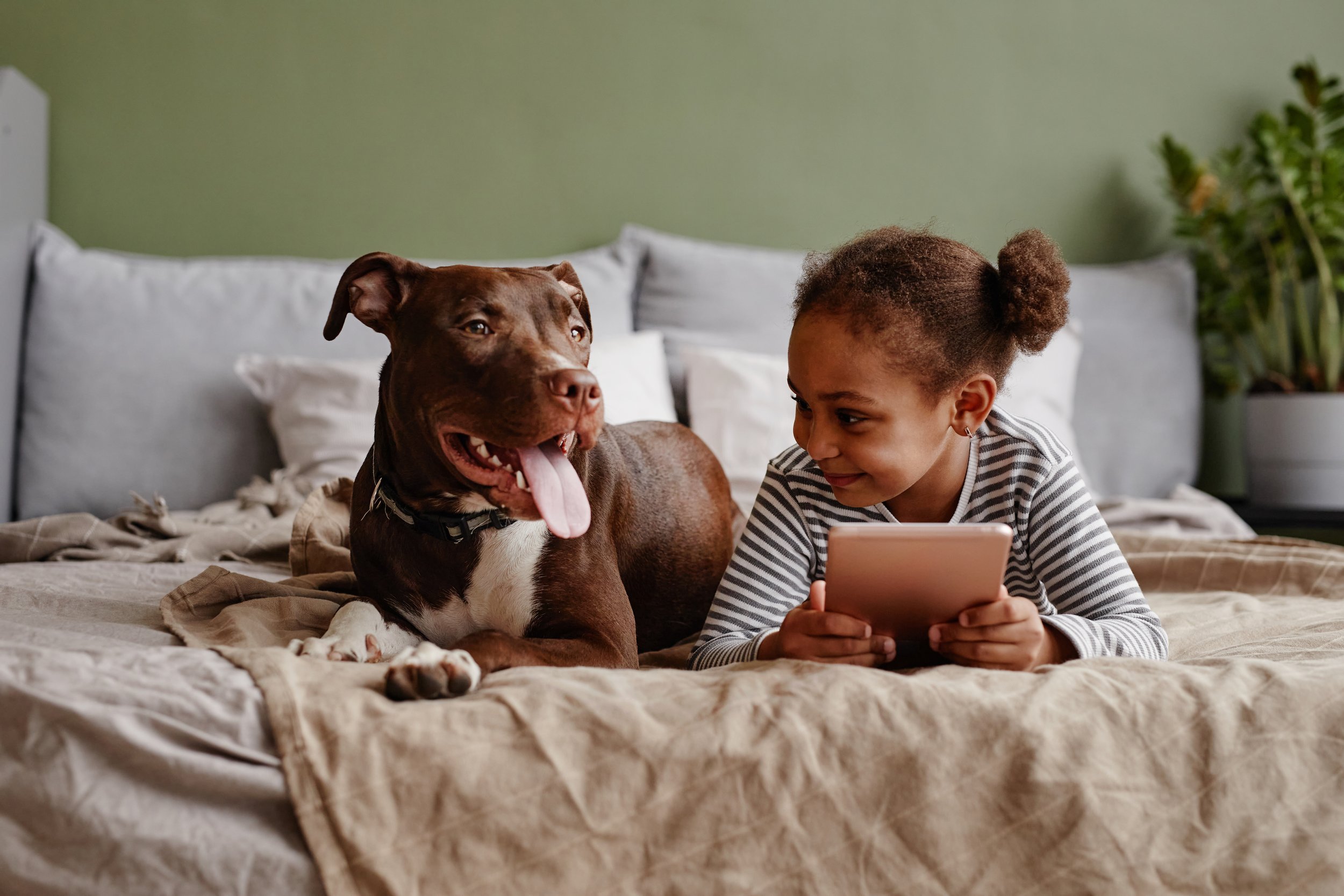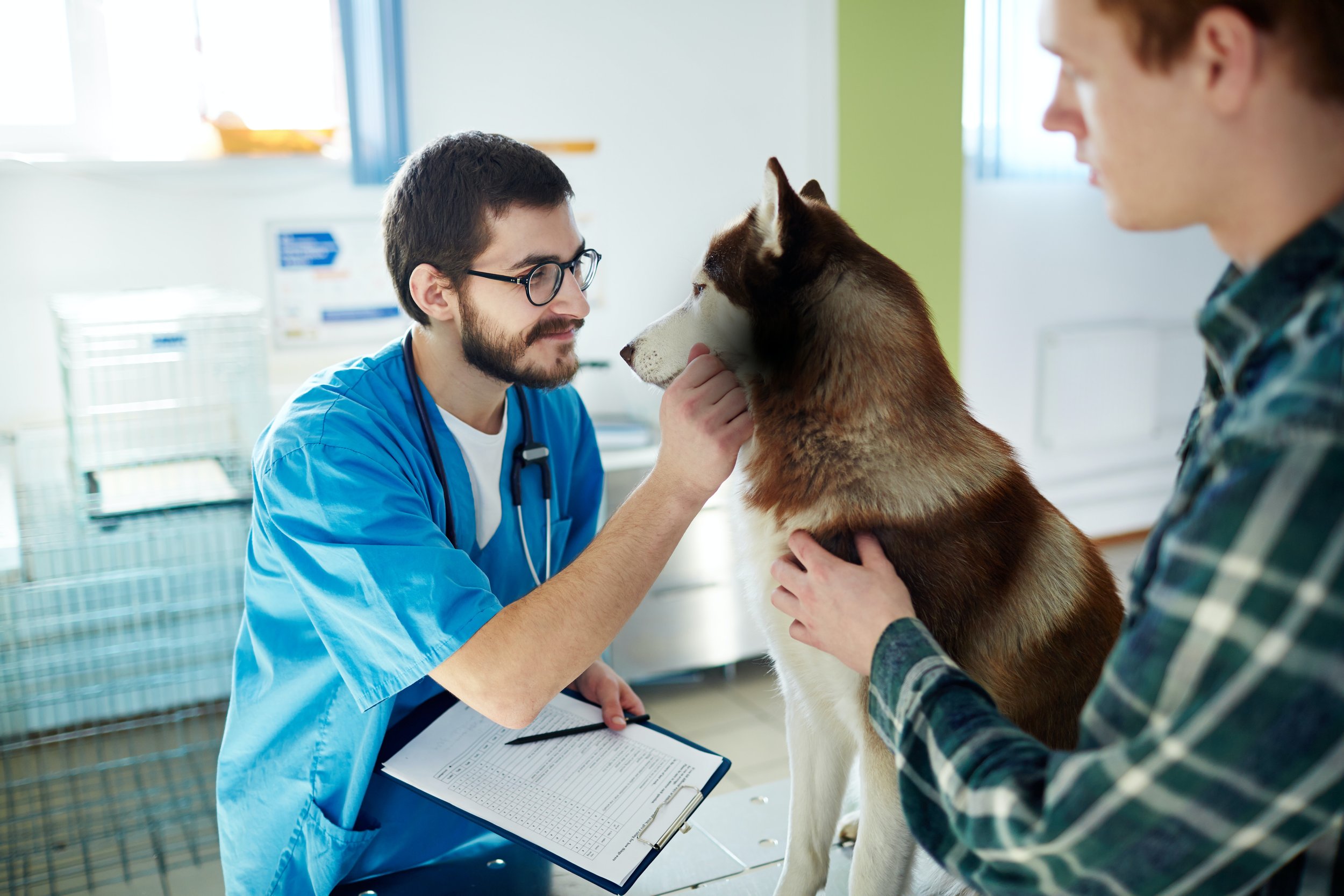
Safety
Preventing Dog Bites and Creating a Positive Environment
Sharing our lives with pets brings immense joy and companionship, but it's essential to prioritize safety to ensure a harmonious relationship. Dog bites can happen, but with awareness and responsible practices, the risk can be significantly reduced.
Preventing dog bites is a shared responsibility that requires awareness, education, and responsible pet ownership. By understanding canine behavior, practicing proper supervision, and fostering positive interactions, we can create a safe environment for both pets and people.
A little knowledge and consideration go a long way in ensuring a loving and secure relationship with our canine companions. Here's a guide on being safe around pets and preventing dog bites for a secure and enjoyable bond with our furry friends.
Be Knowledgable
Understand Canine Behavior: Learn about dog body language and behavior. Recognizing signs of stress, fear, or discomfort allows you to respond appropriately and avoid potential triggers.
Recognize Warning Signs: Be attentive to warning signs such as growling, bared teeth, or raised fur. If a dog displays aggression or discomfort, give them space.
Educate Family and Guests: Educate family members and guests on how to interact safely with your pets. Set clear guidelines for behavior around the animals.
Behave Safely
Supervise Dogs with Children, Seniors, and People with Decreased Mobility: Always supervise interactions between dogs and people at higher risk for dog bites. Teach children to respect a dog's space and avoid bothering them while eating or resting.
Ask for Permission: Approach unfamiliar dogs with caution and always ask the owner's permission before petting. Not all dogs are comfortable with strangers, and respecting their boundaries is crucial.
Let Sleeping Dogs Lie: Avoid disturbing dogs at rest. Dogs may be more protective of their space when resting. Avoid disturbing them while they're sleeping or resting to prevent defensive reactions.
Avoid Teasing or Agitating: Never tease or agitate a dog intentionally. This can escalate stress and potentially lead to aggressive behavior.
Teach Children Dog Safety
Do not approach an unfamiliar dog
Do not disturb a dog who is sleeping, eating, or caring for puppies
Do not pet a dog without allowing the dog to see and sniff you first
Avoid direct eye contact with a dog
Do not run from a dog or scream
Remain motionless ("Be still like a tree.") when approached by an unfamiliar dog. Hold your hands up to your chest and look up at the sky
If knocked over by a dog, roll into a ball and lie still ("Be still like a boulder.")
Do not play with a dog unless supervised by an adult
Teach Your Dog to be Safe Around People and Dogs
Socialization:
Properly socialize your dog. Exposure to various people, dogs, environments, and situations can help reduce fear and aggression. Preferably, socialization starts early, but with care even adult dogs can improve their social skills.
Make your dog a member of the family. Dogs who spend too much time alone (e.g., left outdoors for extended periods) may become stressed and dangerous.
Training:
Invest time in basic obedience training. Commands like "sit," "stay," and "come" provide a level of control and contribute to a well-behaved pet.
Training your dog is an activity the whole family should participate in. Every member of your household should learn proper training techniques and reinforce your dog's education.
The first time your dog shows aggressive behavior toward anybody, even if no injury occurs, seek professional help from a trainer.
Keep Your Dog Healthy
Regular Veterinary Check-ups: Oftentimes, dogs that bite have underlying medical issues. Regular veterinary check-ups can identify and address any health issues that may contribute to changes in behavior.
Spay/Neuter Your Dog: Unsterilized dogs are far more likely to show signs of aggression and bite than sterilized dogs, especially for male dogs. Spaying and neutering has so many behavioral and medical advantages, there’s no reason not to.
Secure Your Dog
Secure Fencing: Ensure that your yard is securely fenced to prevent your dog from escaping and potentially encountering strangers.
Proper Restraint: Over 60% of dog bites are due to dogs being off leash and/or free roaming, without being properly monitored by a responsible owner. Use a leash or other appropriate restraint when in public spaces. This not only complies with local regulations but also ensures control over your pet in unpredictable situations.
Does your dog jump your fence? Try this roll bar fence DIY. These are typically known as “coyote rollers” and work great.
Report all dog bites in Detroit RIGHT AWAY to Detroit Animal Care & Control at (313) 922-3647.
In Case a Dog Bites
Tell the animal control official everything you know about the dog, including the owner’s name and address.
If the dog is a stray, tell the animal control official what the dog looks like, where you saw the dog, whether you’ve seen the dog before, and in which direction the dog went.
Note: Detroit Animal Care & Control officials investigate each case to determine the circumstances around each bite and the most appropriate follow-up actions. Euthanasia is not automatic, and is reserved for only the most serious cases.



